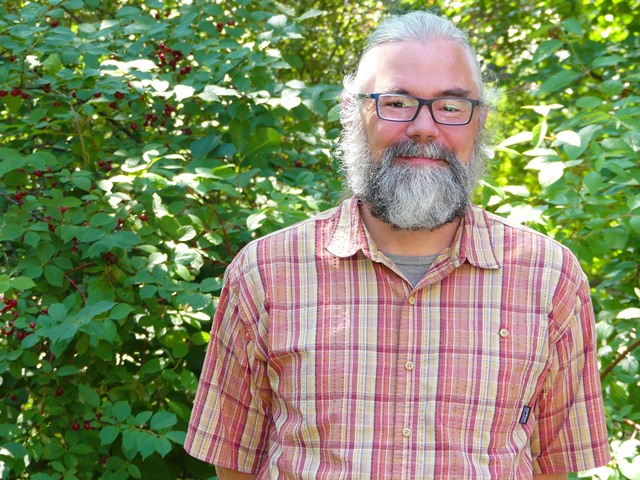
Dr. Howie Harshaw's research is funded by a 2017 Social Sciences and Humanities Research Council (SSHRC) Insight Grant
Recreation is an integral part of Canadian identity, yet little research has been done to understand where and why Canadians flock to the great outdoors, thereby finding ways to enhance this right of passage.
"Access, naturalness and the amount of infrastructure plays a major role in people's preferred recreation settings," says Howie Harshaw, associate professor in the Faculty of Physical Education and Recreation who will spend the next five years putting Canadian outdoor recreation preference assumptions to the test thanks to recent a Social Sciences and Humanities Research Council (SSHRC) Insight Grant.
"Ultimately, it's very important that everyone has a space where they can freely participate in the outdoor recreational activities of their choosing."
According to the 2012 Canadian Nature Survey, 70 per cent of Canadians engage in outdoor recreation. Harshaw adds, understanding people's recreation preferences and motivations is important for land-use managers when planning how much land should be used for recreation, how much should be set aside for conservation purposes and how much should be used for a combination of both.
To determine these recreation land-use parameters, Harshaw will work with three recreation activity groups-rock climbers, big-game hunters and bird watchers-and will seek to answer the following questions:
1.) To what degree do someone's social groups and networks influence their recreational setting preferences?
2.) How do people's environmental attitudes influence their recreation preferences, and, in turn, do their recreation preferences change their attitudes about the environment?
3.) How much does the recreation specialization framework-the understanding of recreation participation in terms of commitment to activities, and the skills developed specific to recreational activities-influence someone's identity? Do people who frequently rock climb consider themselves a "rock climber" as opposed to an accountant or whatever their profession may be?
Harshaw chose to work with the three activity groups by design, as all three groups participate in specialized forms of nature-based recreation. Rock climbers, for instance, use nature as the physical means of their activity whereas big-game hunters and bird watchers interact with nature and wildlife for consumptive and non-consumptive purposes respectively. The difference in their interactions with outdoor recreation could ultimately reflect different outcomes, which provides balance for the research project.
The outcomes of this research will ideally guide informed decisions for how land-use managers and governing bodies such as Alberta Environment and Parks plan and manage for outdoor recreation. For Harshaw, this information is vital for maintaining the important balance between providing recreation spaces for Canadians and preserving nature areas.
"I'm a firm believer that access to outdoor recreation is a right that all Canadians have. We have to find ways to manage that right responsibly so that we're not damaging the environment too much, while providing opportunities for people to get out and experience the benefits of being in and interacting with nature."